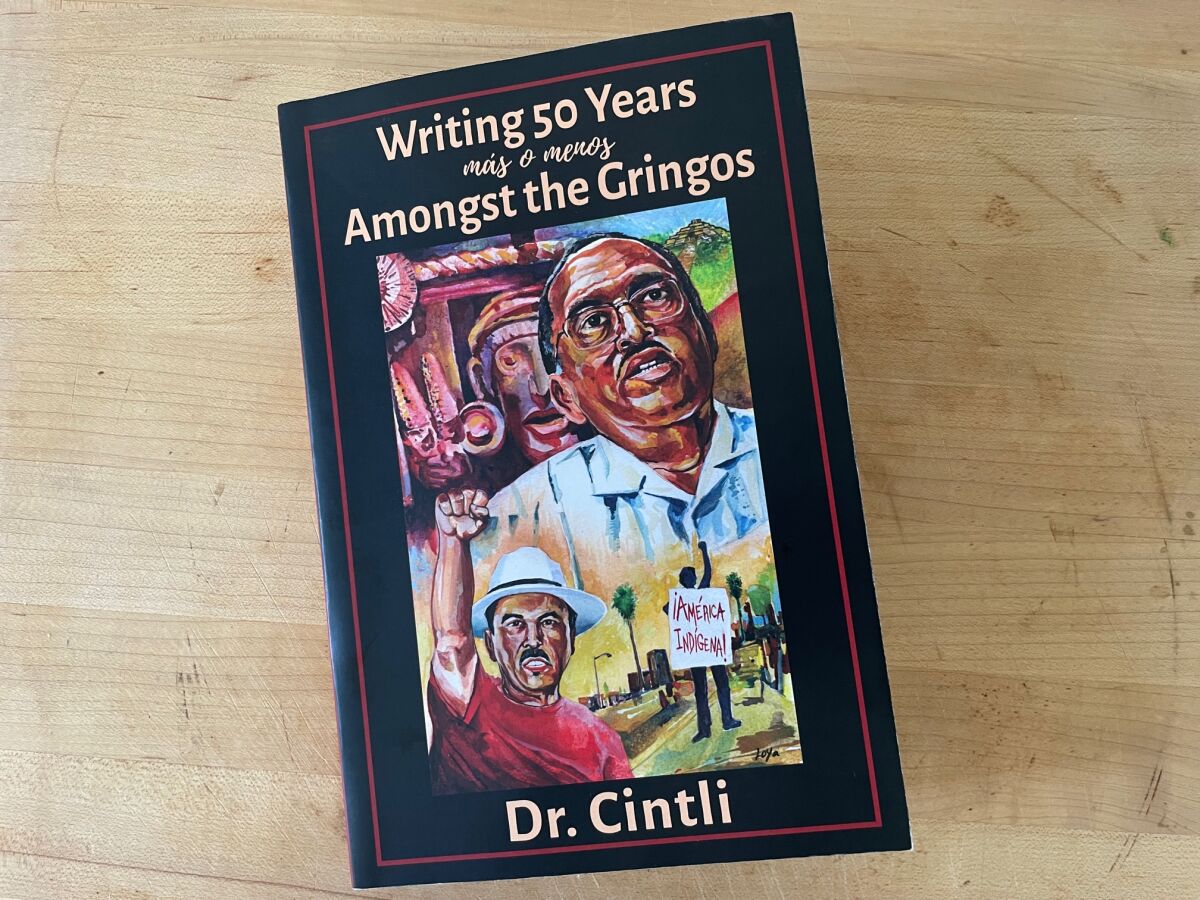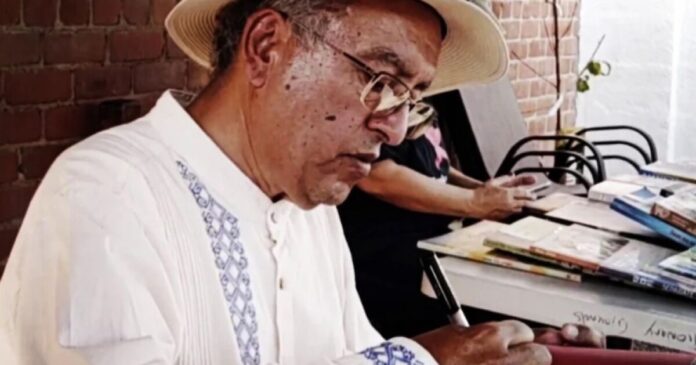Within the spring of 1979, Roberto Rodriguez was on project for Lowrider Journal in East Los Angeles. The movie “Boulevard Nights,” which dramatized the lifetime of Chicano gangs within the neighborhood, had simply debuted, and regulation enforcement officers throughout Southern California have been arresting folks for merely cruising of their barrios.
On Whittier Boulevard, the place Rodriguez had gone to interview and {photograph} folks, he noticed L.A. County sheriff’s deputies beating up a person who had wandered onto the road waving a serape. Rodriguez documented the assault, till the deputies demanded he depart.
“Subsequent factor you recognize,” Rodriguez wrote in his subsequent article, “I acquired pushed from behind after which I heard [a deputy] say, “Get in opposition to the f— automobile.”
4 deputies kicked, punched and beat Rodriguez with a baton earlier than arresting him. He spent three days within the hospital, acquired 14 stitches for a gash between his eyebrows, then came upon that prices could be filed in opposition to him for allegedly assaulting the deputies along with his digital camera.
“The unhappy half is … issues like this occur each weekend — prefer it was nothing,” Rodriguez concluded.
Rodriguez went on to change into some of the prolific Chicano writers of his era. He authored poems, books and a nationally syndicated column along with his spouse, Patrisia Gonzales, whereas lecturing nationwide on all the pieces from police brutality to ethnic research, Aztec teachings and modern politics.
He died Monday of coronary heart failure in Mexico, the place he had lived close to Teotihuacan for the previous three years whereas engaged on his subsequent mission and persevering with to jot down his personal bimonthly column. He was 69.
“Robert at all times saved his coronary heart and soul with la gente,” stated Felix Gutierrez, a retired USC journalism professor who first met Rodriguez when the latter was the editor-in-chief of UCLA’s Chicano newspaper within the Seventies. “He wasn’t searching for a battle, however he was at all times standing up for the folks and points that different folks didn’t get up for as persistently as they need to’ve.”
Prosecutors ultimately dropped the costs in opposition to Rodriguez, however he nonetheless sued, alleging that the deputies had violated his 1st Modification rights and civil rights. In 1986, a jury awarded him $205,000. He used the cash to begin a bilingual journal, telling LA Weekly the next 12 months that “it could’ve been like ingesting my very own blood” to make use of the cash simply on himself. “And that victory represents loads of blood,” he added.
“He would write in an accessible language,” stated poet Matt Sedillo, who helped Rodriguez with an internet database of Latinos killed by regulation enforcement nationwide since 2000. “To not make the straightforward complicated, however to make the complicated easy. The throughline was an open relationship with time. With him, you’d be in Whittier Boulevard, you then’d be with Columbus coming to the Tainos and chopping off their fingers.”
Born in Aguascalientes, Mexico, Rodriguez moved along with his household to East L.A. as a baby within the late Nineteen Fifties. In his 2021 anthology, “Writing 50 Years (más o menos) Amongst the Gringos,” Rodriguez wrote, “Unable to talk English and being chocolate brown, I turned totally conscious of the vicious hate” whites and Mexican People alike “had in opposition to folks like me from Mexico.”
He attributed his curiosity in journalism and Chicano points to Los Angeles Instances columnist Ruben Salazar. Rodriguez’s father watched Salazar’s on-air commentaries for KMEX-TV Channel 34, and Salazar’s killing in 1970 by a sheriff’s deputy who shot a projectile into an East L.A. bar occurred not removed from the Rodriguez house. After graduating from UCLA and dabbling briefly tales, Rodriguez started to contribute commonly to Lowrider Journal, which in these days revealed investigations and on-the-ground dispatches in regards to the Chicano motion as a lot because it did pictures of lovely automobiles and girls.
That’s how he ended up on Whittier Boulevard that Saturday night time.
“He needed to stroll away, however he stated, ‘No, I acquired to take footage,” stated Gonzales. “It lower his life quick.”
The incident hung over Rodriguez for the remainder of his years. He revealed three books about it, whereas struggling horrible complications and nightmares on account of his accidents. Yearly, he commemorated March 25 and Nov. 7 — the anniversaries of his beating and the dropping of the costs in opposition to him.
However Gonzales stated Rodriguez’s civil lawsuit taught him to not maintain hate in his coronary heart, particularly after the jury — which had just one particular person of coloration on it — present in his favor.
“That was a guiding level to him,” she stated. “He believed that folks needed to do proper.”
The 2 met in 1990, at a convention marking Salazar’s dying, and married shortly after. In 1993, he invited her to co-write a column he was about to syndicate. “He informed me, ‘We’re equals. We’re going to co-create collectively.’”
Their “Column of the Americas” ran for about 13 years as one of many few Latino-penned syndicated columns within the nation. The 2 lined all the pieces from anti-immigrant politics to the Warfare on Terror however more and more centered on migration, each modern and historic. That led Gonzales and Rodriguez to provide a 2005 documentary on the topic and transition to academia — each acquired their doctorates on the College of Wisconsin and ended up on the College of Arizona’s Mexican American Research program, the place they have been affiliate professors.
“He would actually have interaction in dialogue with individuals who thought very otherwise from us,” responding to hateful letters and showing on conservative discuss reveals, Gonzales stated. “He believed in humanization and at all times talked about how too many individuals dehumanize one another.”

Rodriguez’s 2021 anthology of his work
(Gustavo Arellano/Los Angeles Instances)
One in all his passions was maize — its historical past, folklore, science and modern-day makes use of. He revealed a tutorial guide about it in 2014 and even wrote a blurb for the luggage utilized by Acapulco Tortilleria in East L.A. that known as maize “our sacred sustenance.” His advocacy for the staple crop was such that he would signal a few of his writings as Dr. Cintli (corn), a reputation bestowed on him by a Nahua elder in Sacramento.
“He needed mexicanos to grasp that although due to colonization they have been now not related to their tribes, they’re a part of an historic story as a result of they eat corn,” Gonzales stated. “It’s the beginning of your humanity.”
Along with Gonzales, Rodriguez is survived by his brothers John, David, Alex, Dan and Joe. Companies are pending.
“We have been at all times conscious that he may not dwell a very long time,” Gonzales stated, referring to the trauma of his 1979 beating. “However he lived 300 years in his lifetime. He created a lot good. That’s how he discovered happiness.”














